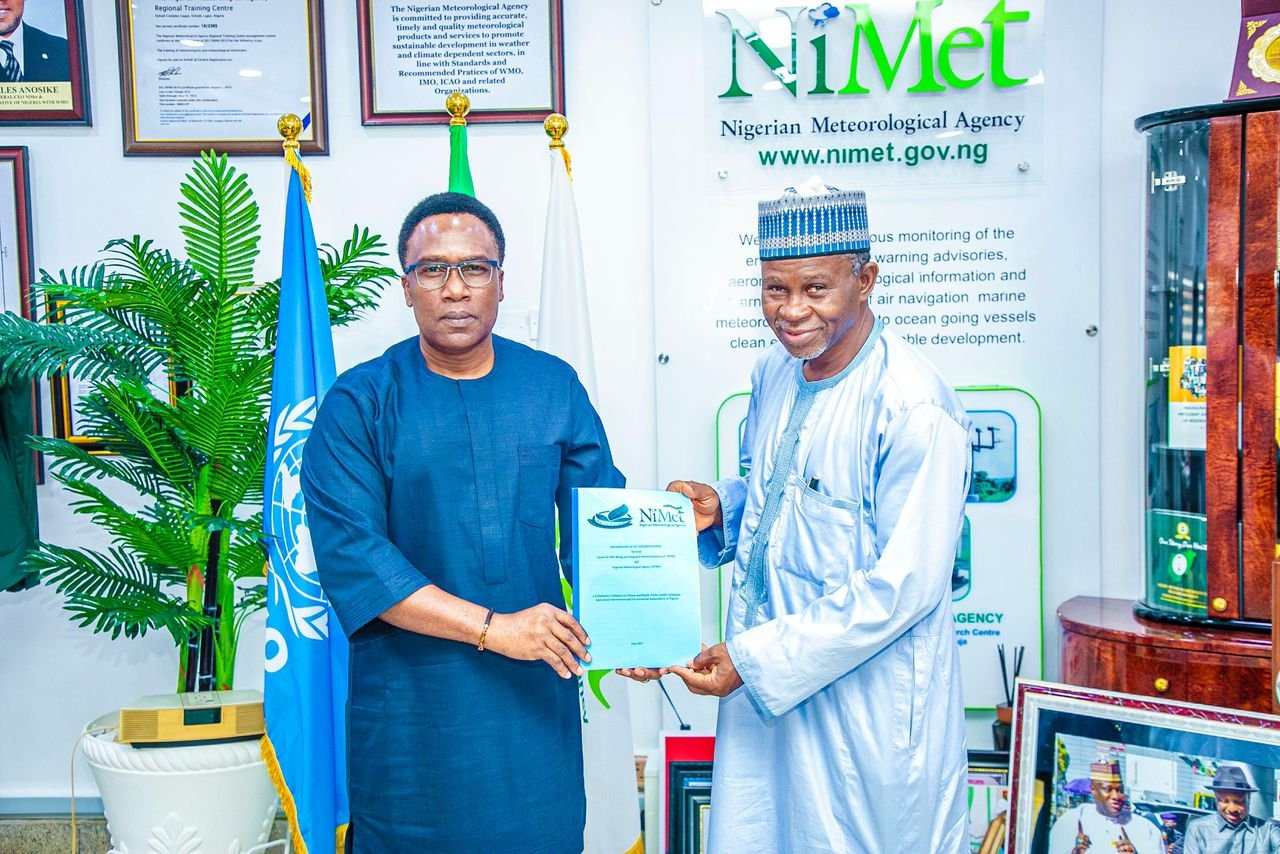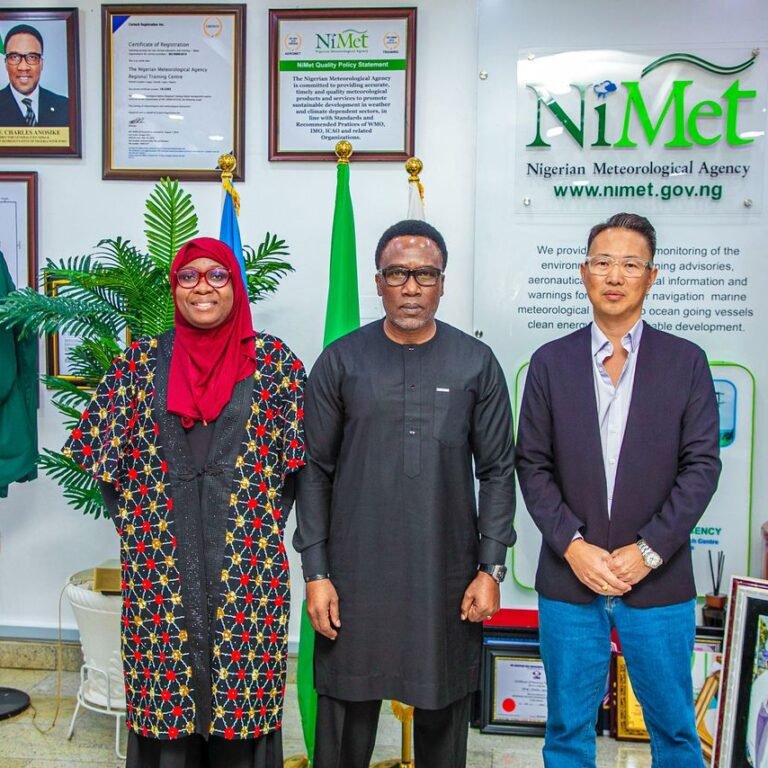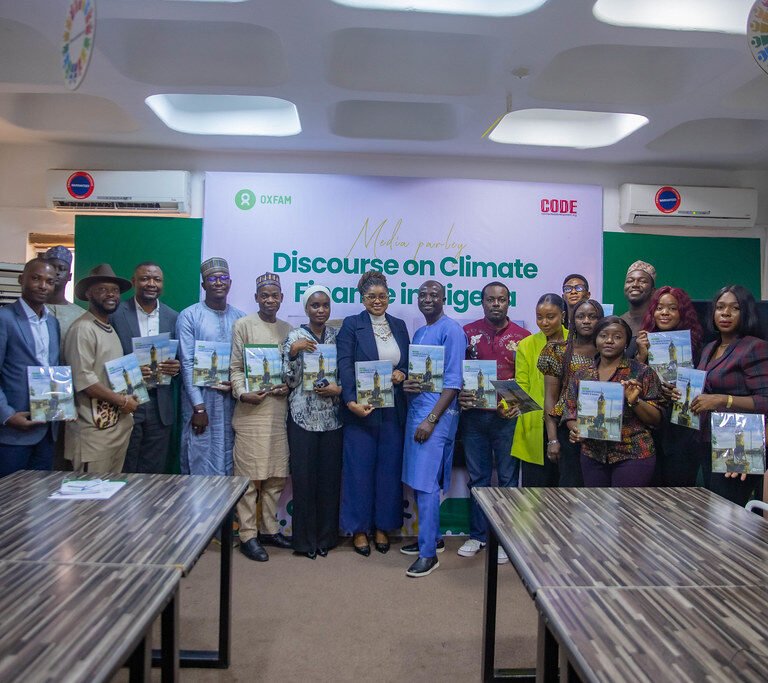
By Chioma Favour
Abuja, Nigeria – The Nigerian Meteorological Agency (NiMet) and the Centre for Well-being and Integrated Nutrition Solutions (C-WINS) have formalized a strategic partnership to advance climate action in Nigeria through integrated solutions that bridge climate, public health, food security, soil health, and community resilience.
The collaboration will roll out early-warning systems tailored for local farmers, empowering them to respond proactively to adverse weather conditions. In addition, NiMet and C-WINS will co-host community workshops on climate-smart agriculture, where farmers will be trained in adaptation techniques using real-time climate data. The initiative is designed to boost crop yields in rural communities while reducing climate-related health risks through timely alerts to farmers and health workers.
Speaking at the event, the Director-General/CEO of NiMet, Prof. Charles Anosike, underscored the need to integrate climate intelligence into everyday decision-making.
“By embedding climate information into health, food, and agricultural systems, we can reduce risks, strengthen nutrition security, improve soil health, and enhance resilience to disasters,” Anosike said. He reaffirmed NiMet’s commitment to providing accurate meteorological data and tailored forecasts as the backbone of the partnership.
On his part, Dr. Mahmud Mustafa, Head of Missions at C-WINS, commended NiMet’s progress and pledged his organization’s support in taking the data from forecasts to the grassroots.
“C-WINS will leverage NiMet’s climate intelligence to design practical training programs for health workers and engage directly with farming communities. Our focus is to ensure that climate information is accessible, actionable, and responsive to local needs,” Mustafa stated.
Through this collaboration, both organizations aim to build climate-resilient communities where farmers increase productivity, health workers anticipate risks, and rural populations are better prepared to adapt to the realities of a changing climate.








